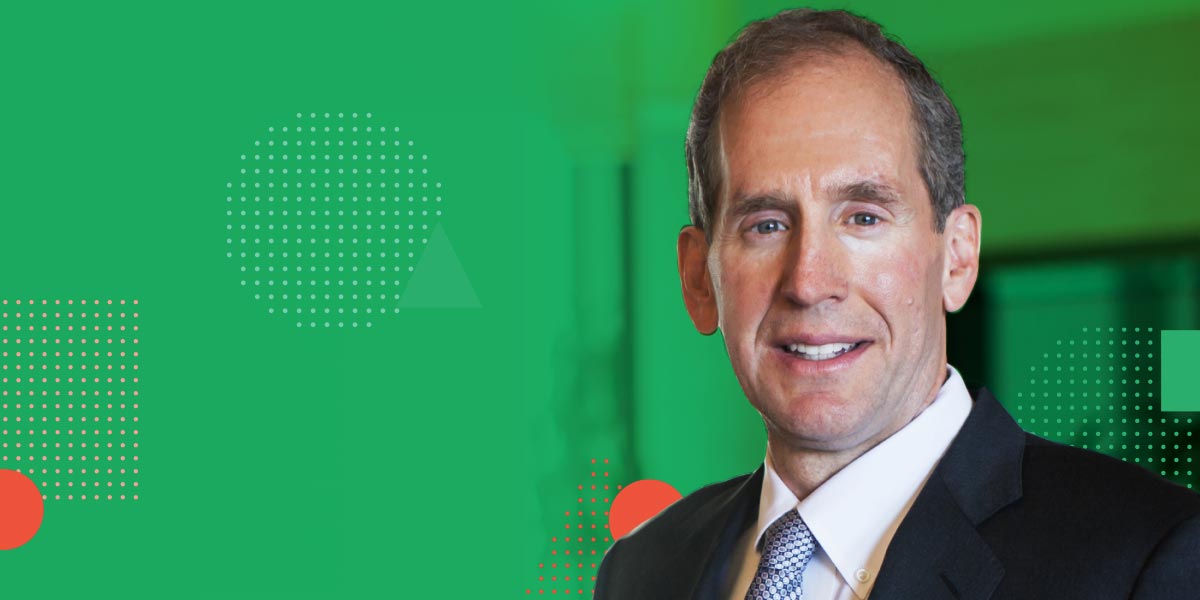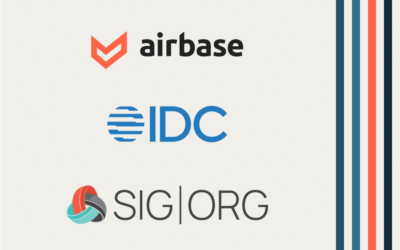We had the opportunity to host an interview with Mark recently about his career and the insights he has gained from it. Conducted by Airbase Founder and CEO, Thejo Kote, the interview covered Mark’s early days in the field, his personal philosophies and thoughts on the future, and his opinions on the role of strategic finance. It is very much worth a listen.
Mark offered advice for aspiring CFOs, finance directors, treasurers, controllers, accounting team leads, and just about anyone currently in, or aiming for, a leadership role in any capacity.
Self-improvement and proactivity.
What is the ideal background for a CFO? Mark thinks that there isn’t one — at least not one that is explicitly agreed upon. Instead, he points to a person’s willingness to work hard, continually learn, and become a leader. These qualities make for an ideal CFO.
Speaking openly about his journey — what we might call his path to becoming a CFO — Mark shares that he focused on education and technology from a young age. He explains that, in his early 20s, he turned down a good job at General Motors and sought a career change by way of Hewlett-Packard. This would prove to be a smart move.
HP would go on to pay for Mark to pursue a Master’s Degree in Finance, all the while providing ample opportunities for Mark to learn and grow. His focus on acquiring new skills and experiences, along with his belief in the utility of new technology, positioned Mark to perform strongly at HP and in subsequent roles in his career.
Mark identifies a pattern for people who succeed in finance:
- They’re committed to developing leadership skills and financial acumen.
- They understand and can strategically implement delayed gratification for themselves and their organizations.
- They are constantly in pursuit of more experiences and the means to improve themselves.
- They know how to identify opportunities and when to take them.
In short, a successful finance person is always planning for the future and yet isn’t afraid to change course for the acquisition of newly relevant skills or new opportunities. Mark hits this thesis repeatedly throughout the interview.
The notion of focusing on learning and planning seems to be corroborated by other leaders in finance. For example, Nadia Asoyan, CFO of Step and former Head of Finance and Strategy at Robinhood, repeatedly advises forward-looking steps to take in the first 90 days as a strategic finance leader.
There’s one other talking point that Mark repeats: the metaphor of You Incorporated. He thinks it is useful for people to imagine themselves as a company, of which they are also the CEO. They need to be “investing in R&D every year.”
Reputation and network.
Mark thinks that the brand and reputation of You Incorporated are essential to its success. This means that every action you take should be made in the context of how it reflects on you. And this, in turn, means that it’s advisable to consistently make decisions from a place of strong core values, like learning and self-improvement.
Your brand both influences and is influenced by your professional network. Mentors and peers are an invaluable resource on the path to becoming a CFO. But how do you find a mentor? Mark suggests being candid and easy to work with. Ask to follow and learn from the potential mentor, but stress that it won’t cost this person much time or energy.
Of course, despite the value of having multiple mentors, there’s always the possibility of mentors contradicting each other. What’s to be done in such a situation? Mark thinks it’s best avoided entirely. You should ask mentors “for perspective, not answers.”
Perspective and analysis.
Playing the part of something akin to a mentor, a CFO has a special duty to provide perspective to the leadership of an organization. It is a CFO’s responsibility to share insights on otherwise unseen financial implications, both long term and short term, and not to make unilateral decisions for a company. This is further supported by Mark’s view that finance teams are in fact cross-functional, enabling other parts of an organization to thrive by offering insights and lateral thinking. And it’s worth noting that sharing your unique financial perspective does not necessarily mean pushing an agenda. Mark says that CFOs need to be able to “speak truth to power, comfortably, but you also have to be able to do it gracefully.”
It naturally follows that CFOs must develop an insightful perspective before being able to share it. This is achieved through analysis and diligent awareness, monitoring, and evaluating all facets of a company’s spend.
Strategic finance and planning for the future.
“I want my team to be maniacally focused on the short-term execution of a long-term plan,” says Mark.
A CFO serves all of the stakeholders of an organization, on all levels, but is ultimately concerned with what best serves the company’s longevity.
Mark makes it sound a bit like a juggling act. And it is. This underscores the importance of having a strong team, strong tools, and a strong drive to improve yourself – You Incorporated.
It is impossible to formulate a long-term plan for things like operating expenses or profitability without at least considering the future. But considering the future is a difficult and nebulous task. Mark’s advice for tackling the future is to master complexity. He doesn’t think things are going to get any simpler as time moves forward. He does, however, speculate on the future of finance a bit more specifically. He sees a move towards using AI and real-time data to inform strategic decision-making. We tend to agree with Mark. And we agree with his parting imperative: “We must focus on the future, regardless of what it ultimately looks like.”
 Jira Integration – Streamline Your Workflows
Jira Integration – Streamline Your Workflows  Ironclad Integration – Simplify Legal Operations
Ironclad Integration – Simplify Legal Operations  Asana
Asana 




